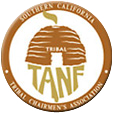Reparations for slavery is a proposal that some type of compensation should be provided to the descendants of enslaved people in the United States, in consideration of the coerced and uncompensated labor their ancestors performed over centuries. This compensation has been proposed in a variety of forms, from individual monetary payments to land-based compensation schemes related to independence. The idea remains highly controversial and no broad consensus exists as to how it could be implemented. There have been similar calls for reparations from some Caribbean countries and elsewherein the African diaspora, and some African countries have called for reparations to their states for the loss of their population.
The arguments surrounding reparations are based on the formal discussion about many different reparations and actual land reparations received by African-Americans which were later taken away.
In 1865, after the Confederate States of America were defeated in the American Civil War, General William Tecumseh Sherman issued Special Field Orders, No. 15 to both “assure the harmony of action in the area of operations” and to solve problems caused by the masses of freed slaves, a temporary plan granting each freed family forty acres of tillable land in the sea islands and around Charleston, South Carolina for the exclusive use of black people who had been enslaved.
Around 40,000 freed slaves were settled on 400,000 acres in Georgia and South Carolina. However, President Andrew Johnson reversed the order after Lincoln was assassinated and the land was returned to its previous owners.
Reconstruction came to an end in 1877 without the issue of reparations having been addressed.
Reparation for slavery in what is now the United States is a complicated issue. The Rev. M.J. Divine, better known as Father Divine, was one of the earliest leaders to argue clearly for “retroactive compensation” and the message was spread via International Peace Mission publications.
In contemporary times many have championed the reparation cause. Most notably Mr. John Peoples of Los Angeles works for reparations now between the United States and American Black US citizens, the descendents of West African Americanized chattel slaves and their children.





